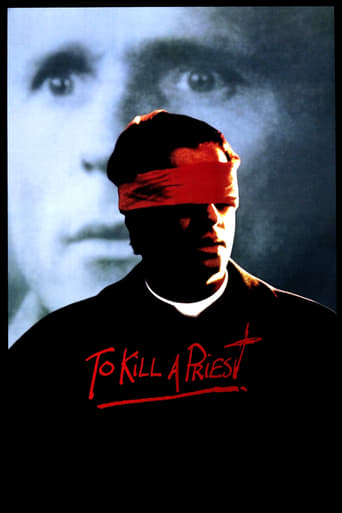"To Kill a Priest," a compelling 1988 film produced by Sofica Valor and France 3 Cinéma, delves into the turbulent political and religious landscape of 1980s Poland. Directed by Agnieszka Holland, the movie is inspired by the real-life assassination of Father Jerzy Popiełuszko, a Catholic priest who became a symbol of resistance against the oppressive Communist regime. The film intricately weaves the story of Father Alek (portrayed by Christopher Lambert), a charismatic priest whose sermons inspire hope and defiance among his congregation, and a conflicted secret police officer, Stefan (played by Ed Harris), tasked with silencing him. The narrative masterfully captures the tension and moral dilemmas faced by individuals caught in the crossfire of political oppression and personal conviction. Set against the backdrop of a nation yearning for freedom, "To Kill a Priest" offers a poignant exploration of the power of faith and the human spirit. The film's atmospheric cinematography and evocative score enhance the emotional depth of the story, drawing viewers into the heart of the struggle. Christopher Lambert delivers a compelling performance as Father Alek, embodying the priest's unwavering dedication to his flock and his country. Ed Harris, as the tormented Stefan, brings a nuanced portrayal of a man torn between duty and conscience, adding layers of complexity to the film's moral landscape. The film's strength lies in its ability to humanize the political conflict, focusing on the personal stories of those affected by the regime's brutality. Through the lens of Father Alek's ministry and Stefan's internal struggle, "To Kill a Priest" sheds light on the broader themes of oppression, resistance, and the quest for justice. The interactions between the characters, particularly the evolving relationship between Father Alek and Stefan, serve as a microcosm of the larger societal tensions, highlighting the potential for empathy and understanding even amidst profound ideological differences. "To Kill a Priest" remains a powerful testament to the enduring impact of one man's courage and the universal struggle for freedom. Its relevance extends beyond the specific historical context of 1980s Poland, resonating with audiences worldwide who have witnessed or experienced similar battles against tyranny. The film's thoughtful storytelling and strong performances ensure its place as a significant work in the canon of political cinema, offering both a historical reflection and a timeless message of hope and resilience.
Año1988
Duración117 minuto
GénerosDramaSuspenseHistoria
Países de producciónFranceUnited States of America


